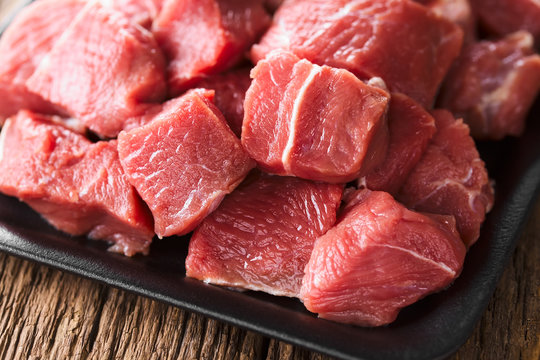Find out “7 Surprising Health Benefits Of Red Meat” A red meat comes from a mammal and has a red color when raw, due to myoglobin, a protein that stores oxygen in muscle cells. Examples of red meat are beef, venison, pork, and lamb.
Due to studies linking high consumption of red meat to various health risks, most people believe that red meat is unhealthy. However, red meat also has a number of health benefits.
It contains complete proteins, good fats, B vitamins, and a variety of meat-specific nutrients. Red meat ranks among the foods with the highest nutritional density.
The fact that a lot of recent studies link red meat to diabetes, heart disease, and cancer makes it understandable why many people avoid it.
A healthy diet can include red meat, including beef, pork, veal, and mutton, as long as you select the right cut and quantity.
We will discuss the health benefits of red meat in this article.
7 Surprising Health Benefits Of Red Meat

Below are seven potential health benefits of eating red meat:
1. Contains healthy fat
Red meat contains a variety of healthy fats, such as saturated fat, monounsaturated fat, omega-3 fatty acids, and conjugated linoleic acid. The beneficial impacts of these fats are extensive and essential.
The ratio of saturated to unsaturated fats in red meat improves your body’s ability to build and maintain healthy cell membranes.
Conjugated linoleic acid has been demonstrated to considerably lower the risk of several malignancies, enhance the immune system and heart health, strengthen bones, and reduce extra body fat.
2. High in protein
Red meat is a great source of protein, especially grass-fed beef. For instance, a four-ounce meal of lean beef strip steak has around 26 grams of protein, which is more than half of what most individuals require each day.
Red meat also provides complete proteins, which is more significant. Complete proteins, as opposed to incomplete proteins, contain all nine essential amino acids that are the building blocks of protein required by your body to perform vital bodily tasks.
Protein is also associated with weight loss because it suppresses appetite and maintains stable blood sugar levels, reducing cravings.
3. Rich in zinc
Another advantage of occasionally eating red meat is that it contains a healthy amount of zinc. Your body needs zinc from food because it supports healthy brain function, immune system function, and muscle growth. Zinc deficiency is linked to heightened susceptibility to infections and the emergence of inflammatory illnesses.
Averagely, your body needs a daily requirement of roughly 8 to 11mg. Oysters, fortified cereals, chicken, and other shellfish are excellent sources of zinc in addition to red meat.
4. May improve mental health and lower depression
Numerous studies relate eating red meat to better mental health and a decrease in depressive symptoms. Red meat contains a variety of B vitamins, all of which contribute to important functions such as brain health and energy production.
A deficiency In B12 can lead to problems such as increased fatigue, constipation, and decreased cognitive function. Red meat also contains riboflavin, a B vitamin that maintains healthy skin and eyes and helps turn food into energy.

5. Promotes blood health
Red meat is a great source of iron. Red meat contains iron, which aids in the production of hemoglobin, a protein that helps your blood transport oxygen from your lungs to the rest of your body.
Iron deficiency anemia, which occurs when your body does not receive enough oxygen, can worsen if you don’t consume enough iron. You may experience fatigue, lethargy, weakness, and impaired cognitive functions.
People at risk of iron deficiency anemia can benefit from eating beef.
6. Great source of vitamin B12
Red meat is also an excellent source of vitamin B12, which is a water-soluble nutrient necessary for many functions in the body.
Vitamin B12 is particularly essential for the proper functioning of the nervous system and the maintenance of healthy nerve cells.
7. Provides energy to the body
Red meat is considered a good source of energy to the body because it is high in protein and contains a significant amount of iron, B-vitamins, and essential amino acids.
These nutrients play important roles in the body, such as building and repairing muscle tissue, producing energy, and supporting the immune system.
In Conclusion!
The health benefits of red meat are obvious. It contains a wealth of essential vitamins and nutrients your body requires to function at its best. However, being aware of the source of your red meat will guarantee that you consume meat that promotes rather than degrades your health.
READ MORE: What Are The Benefits Of Eating Coconut? – Find Out Here!
FAQs
A: Red meat provides us with iron, zinc and B vitamins. Meat is one of the main sources of vitamin B12 in the diet. Food hygiene is important when storing, preparing and cooking meat.
A: On one hand, red meat is a good source of certain nutrients, especially vitamin B-12 and iron. The human body needs these nutrients to produce new red blood cells. Red meat is also high in protein, which is necessary for building muscle, bone, other tissues, and enzymes.
A: Eating too much red meat could be bad for your health. Sizzling steaks and juicy burgers are staples in many people’s diets. But research has shown that regularly eating red meat and processed meat can raise the risk of type 2 diabetes, coronary heart disease, stroke and certain cancers, especially colorectal cancer.
A: Dietary goal – If you eat red meat, limit consumption to no more than about three portions per week. Three portions is equivalent to about 350–500g (about 12–18oz) cooked weight. Consume very little, if any, processed meat.









